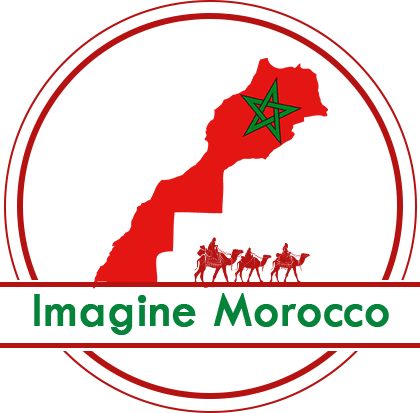
Introduction
The pages of history are adorned with moments that forever shape the course of nations and their relationships. Among these, the recognition of the United States’ independence by Morocco holds a special place. In a bold and visionary move, Morocco became one of the first countries to formally recognize the newly-formed United States of America. This article delves into the significance of this historic event, its impact on international relations, and the enduring friendship between the two nations.
1. Early Diplomatic Ventures
1.1 Seeds of Friendship
In the late 18th century, the American colonies were embroiled in their struggle for independence from British rule. This tumultuous period prompted American envoys to seek alliances with nations sympathetic to their cause. Morocco, under the leadership of Sultan Mohammed III, emerged as a potential ally due to its strategic location and long-standing maritime relations.
1.2 The Treaty of Peace and Friendship
In 1777, representatives of Morocco and the United States negotiated the Treaty of Peace and Friendship, cementing a partnership based on mutual respect and cooperation. This landmark agreement not only recognized the sovereignty of the United States but also established principles of diplomatic immunity, trade relations, and maritime cooperation between the two nations.
2. The Symbolic Gesture of Recognition
2.1 A Break from Tradition
In December 1777, Sultan Mohammed III of Morocco took a historic step by formally recognizing the United States as an independent nation. This move, ahead of many other major powers, showcased Morocco’s progressive approach to international relations. And its willingness to support emerging nations striving for self-determination.
2.2 Diplomatic Impact
Morocco’s recognition had a ripple effect, prompting other countries to reconsider their stance on the United States. This bold gesture helped legitimize the American cause and lent a degree of international credibility to the young nation’s struggle.
3. Shared Values and Interests

3.1 Mutual Respect and Religious Freedom
One of the foundations of the Morocco-USA relationship was mutual respect for each other’s religious and cultural differences. Morocco’s history of religious tolerance resonated with the United States’ commitment to religious freedom, fostering a sense of camaraderie between the two nations.
3.2 Economic and Trade Bonds
Beyond diplomatic ties, economic relations between Morocco and the United States flourished. The two nations engaged in trade, particularly in commodities like salt, textiles, and food products, showcasing their commitment to nurturing a partnership that extended beyond politics.
4. An Enduring Legacy
4.1 A Diplomatic Milestone
Morocco’s recognition of the United States’ independence remains an important diplomatic milestone, highlighting the power of alliances built on shared values and principles. This enduring legacy continues to influence international relations and shape the narratives of diplomacy and cooperation.
4.2 Modern-Day Relations
The spirit of cooperation between Morocco and the United States persists in the present day. Both nations have collaborated on various fronts. Including counterterrorism efforts, economic partnerships, and cultural exchanges, cementing their relationship as a testament to the enduring impact of diplomacy.
Conclusion
Morocco’s recognition of the United States’ independence stands as a beacon of friendship and diplomacy in a world of shifting allegiances. Not only does this historic gesture solidified the relationship between the two nations, But also highlighted the importance of principled diplomacy and cooperation. As Morocco and the United States continue to navigate the currents of global politics. Their shared history serves as a reminder of the power of unity, respect, and mutual support.
Frequently Asked Questions (FAQs)
- Why did Morocco choose to recognize the United States’ independence early on?
Morocco’s recognition of the United States’ independence was driven by its progressive approach to international relations and its alignment with the principles of self-determination. - How did the Treaty of Peace and Friendship impact Morocco-USA relations?
The treaty established a foundation of mutual respect, cooperation, and trade between the two nations. Shaping their relationship for years to come. - How has the Morocco-USA relationship evolved over time?
From trade partnerships to modern-day collaborations, the relationship between Morocco and the United States has grown stronger, reflecting shared values and interests. - What is the significance of Morocco’s recognition for the United States’ struggle for independence?
Morocco’s recognition added international legitimacy to the United States’ cause. It influenced the stance of other nations towards the young nation’s fight for independence. - How does the legacy of Morocco’s recognition impact modern diplomacy?
The legacy of Morocco’s recognition serves as a reminder of the enduring power of diplomatic alliances. Built on shared values, respect, and cooperation.



